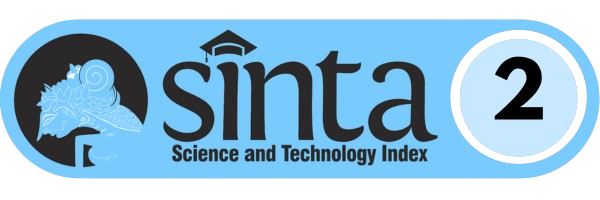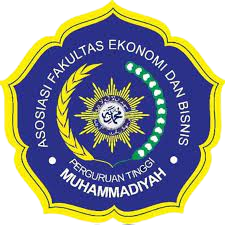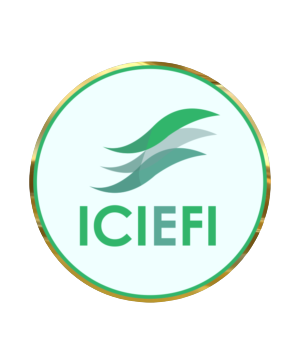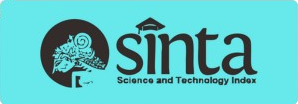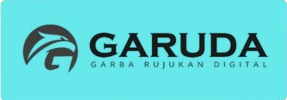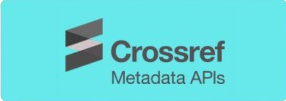Unveiling the Role of Protean Career Orientation and Leadership in Organizational Commitment and Employee Performance: A Systematic Literature Review
DOI:
https://doi.org/10.24269/ekuilibrium.v20i2.2025.pp317-340Keywords:
Protean Career Orientation, Leadeship, Organizational Commitment, Employee PerformanceAbstract
In today’s dynamic organizational environment, Protean Career Orientation (PCO) and leadership are critical drivers of organizational commitment and employee performance. While extensively studied separately, their combined effects remain underexplored. This study systematically reviews empirical research to clarify how PCO and leadership interact to influence employee outcomes. A systematic literature review was conducted using Scopus-indexed articles published between 2014 and 2024. Targeted keywords related to performance management, leadership, and PCO guided the search. Applying PRISMA protocol and strict inclusion criteria, 863 high-quality studies were retained for qualitative synthesis. PCO was found to positively influence affective and normative commitment through organizational identification, career optimism, and mentoring, but had limited effect on continuance commitment. Leadership styles—particularly participative, transformational, and managerial coaching—consistently improved commitment and performance. The synergy between PCO and supportive leadership promoted proactive behaviors and organizational citizenship, mediating performance gains. The findings emphasize the need for organizations to integrate career autonomy with empowering leadership to strengthen commitment and enhance performance. The proposed framework advances theory by linking PCO with leadership-driven engagement. Practically, it offers HR strategies for fostering autonomy, development, and supportive leadership. Limitations include reliance on secondary data and lack of industry-specific focus.
References
Bartsch, S., Weber, E., Büttgen, M., & Huber, A. (2021). Leadership matters in crisis-induced digital transformation: how to lead service employees effectively during the COVID-19 pandemic. Journal of Service Management, 32(1), 71–85. https://doi.org/10.1108/JOSM-05-2020-0160
Bo, G., Zhenglong, P., & Hongdan, Z. (2021). Research on the influence mechanisms of coaching leadership on subordinates’ career success. Journal of Industrial Engineering and Engineering Management, 35(6), 87–96. https://doi.org/10.13587/j.cnki.jieem.2021.06.008
Buil, I., Martínez, E., & Matute, J. (2019). Transformational leadership and employee performance: The role of identification, engagement and proactive personality. International Journal of Hospitality Management, 77, 64–75. https://doi.org/10.1016/j.ijhm.2018.06.014
Chen, X.-P., Eberly, M. B., Chiang, T.-J., Farh, J.-L., & Cheng, B.-S. (2014). Affective Trust in Chinese Leaders: Linking Paternalistic Leadership to Employee Performance. Journal of Management, 40(3), 796–819. https://doi.org/10.1177/0149206311410604
Cherif, F. (2020). The role of human resource management practices and employee job satisfaction in predicting organizational commitment in Saudi Arabian banking sector. International Journal of Sociology and Social Policy, 40(7/8), 529–541. https://doi.org/10.1108/IJSSP-10-2019-0216
Darvishmotevali, M., & Altinay, L. (2022). Green HRM, environmental awareness and green behaviors: The moderating role of servant leadership. Tourism Management, 88. https://doi.org/10.1016/j.tourman.2021.104401
Eliyana, A., & Ma’arif, S. (2019). Job satisfaction and organizational commitment effect in the transformational leadership towards employee performance. European Research on Management and Business Economics, 25(3), 144–150. https://doi.org/10.1016/j.iedeen.2019.05.001
Ernest, E. E., & Vincent, E. (2025). Employee Commitment and Organizational Performance of SMES in Delta State. International Research Journal of Multidisciplinary Scope, 06(01), 472–481. https://doi.org/10.47857/irjms.2025.v06i01.02233
Fu, W., & Deshpande, S. P. (2014). The Impact of Caring Climate, Job Satisfaction, and Organizational Commitment on Job Performance of Employees in a China’s Insurance Company. Journal of Business Ethics, 124(2), 339–349. https://doi.org/10.1007/s10551-013-1876-y
Gong, Z., Gilal, F. G., Gilal, R. G., & Jahanzeb, A. (2025). Protean career orientation and job search: investigating the mediating role of career optimism in mentoring relationships. Global Knowledge, Memory and Communication, 74(1/2), 533–547. https://doi.org/10.1108/GKMC-11-2022-0267
Gong, Z., Van Swol, L. M., & Wang, X. (2022). Study on the Relationship between Nurses’ Mentoring Relationship and Organizational Commitment. International Journal of Environmental Research and Public Health, 19(20), 13362. https://doi.org/10.3390/ijerph192013362
Kim, K. (2024). Protean Career Orientation and Organizational Commitment: The Role of Organizational Identification. GLOBAL BUSINESS FINANCE REVIEW, 29(3), 94–107. https://doi.org/10.17549/gbfr.2024.29.3.94
Kurtessis, J. N., Eisenberger, R., Ford, M. T., Buffardi, L. C., Stewart, K. A., & Adis, C. S. (2017a). Perceived Organizational Support: A Meta-Analytic Evaluation of Organizational Support Theory. Journal of Management, 43(6), 1854–1884. https://doi.org/10.1177/0149206315575554
Kurtessis, J. N., Eisenberger, R., Ford, M. T., Buffardi, L. C., Stewart, K. A., & Adis, C. S. (2017b). Perceived Organizational Support: A Meta-Analytic Evaluation of Organizational Support Theory. Journal of Management, 43(6), 1854–1884. https://doi.org/10.1177/0149206315575554
Liu, W., He, Q., Cao, J., & Kamar, A. (2024). Exploring the catalysts of eco-innovation: Employee ownership and sustainable practices. Technological Forecasting and Social Change, 207. https://doi.org/10.1016/j.techfore.2024.123629
Lorinkova, N. M., & Perry, S. J. (2019). The importance of group-focused transformational leadership and felt obligation for helping and group performance. Journal of Organizational Behavior, 40(3), 231–247. https://doi.org/10.1002/job.2322
Mercurio, Z. A. (2015). Affective Commitment as a Core Essence of Organizational Commitment: An Integrative Literature Review. Human Resource Development Review, 14(4), 389–414. https://doi.org/10.1177/1534484315603612
Mittal, S., & Dhar, R. L. (2015). Transformational leadership and employee creativity: Mediating role of creative self-efficacy and moderating role of knowledge sharing. Management Decision, 53(5), 894–910. https://doi.org/10.1108/MD-07-2014-0464
Newman, A., Ucbasaran, D., Zhu, F., & Hirst, G. (2014a). Psychological capital: A review and synthesis. Journal of Organizational Behavior, 35(SUPPL.1), S120–S138. https://doi.org/10.1002/job.1916
Newman, A., Ucbasaran, D., Zhu, F., & Hirst, G. (2014b). Psychological capital: A review and synthesis. Journal of Organizational Behavior, 35(SUPPL.1), S120–S138. https://doi.org/10.1002/job.1916
Ng, T. W. H. (2017). Transformational leadership and performance outcomes: Analyses of multiple mediation pathways. Leadership Quarterly, 28(3), 385–417. https://doi.org/10.1016/j.leaqua.20Nishanthi, H. M., & Kailasapathy, P. (2018a). Employee Commitment: The Role of Organizational Socialization and Protean Career Orientation. South Asian Journal of Human Resources Management, 5(1), 1–27. https://doi.org/10.1177/232209371773972916.11.008
Nishanthi, H. M., & Kailasapathy, P. (2018b). Employee Commitment: The Role of Organizational Socialization and Protean Career Orientation. South Asian Journal of Human Resources Management, 5(1), 1–27. https://doi.org/10.1177/2322093717739729
Rank, Johannes;Carsten, J. M., Unger, J. M., & Spector, P. E. (2024). Proactive customer service performance: relationships with individual, task, and leadership variables. Human Performance, 20(4), 363–390.
Redondo, R., Sparrow, P., & Hernández-Lechuga, G. (2021). The effect of protean careers on talent retention: examining the relationship between protean career orientation, organizational commitment, job satisfaction and intention to quit for talented workers. The International Journal of Human Resource Management, 32(9), 2046–2069. https://doi.org/10.1080/09585192.2019.1579247
Rodrigues, R., Guest, D., & Oliveira, T. C. (2022). Are participants in the ‘new career’ good organizational citizens? The International Journal of Human Resource Management, 33(13), 2662–2687. https://doi.org/10.1080/09585192.2021.1900322
Sabharwal, M. (2014). Is diversity management sufficient? Organizational inclusion to further performance. Public Personnel Management, 43(2), 197–217. https://doi.org/10.1177/0091026014522202
Sancheznieto, F., & Byars-Winston, A. (2021). Value, Support, and Advancement: An Organization’s Role in Faculty Career Intentions in Academic Medicine. Journal of Healthcare Leadership, Volume 13, 267–277. https://doi.org/10.2147/JHL.S334838
Schaufeli, W. B. (2015). Engaging leadership in the job demands-resources model. Career Development International, 20(5), 446–463. https://doi.org/10.1108/CDI-02-2015-0025
Schroth, H. (2019). Are you ready for gen Z in the workplace? California Management Review, 61(3), 5–18. https://doi.org/10.1177/0008125619841006
Zhu, L., Cao, S., Zhang, X., Shen, W., & Zhu, C. (2022). Comparison of the Bending Resistance Properties of Carbon Fiber/Foam Sandwich Structural Composites with Different Laying Angles. Fibres and Textiles in Eastern Europe, 30(2), 75–81. https://doi.org/10.2478/ftee-2022-0010
Zhu, L., & Gao, Y. (2024). Protean career orientation, supervisor perceptions and organizational career growth: a moderated mediation model. Current Psychology, 43(10), 8913–8930. https://doi.org/10.1007/s12144-023-05021-1
Zhu, L., Yang, H., Gao, Y., & Wang, Q. (2024). Protean career orientation to turnover intentions: moderating roles of current organizational career growth and future organizational career growth prospect. Career Development International, 29(2), 234–250. https://doi.org/10.1108/CDI-07-2023-0249
Downloads
Published
How to Cite
Issue
Section
License

This work is licensed under a Creative Commons Attribution-ShareAlike 4.0 International License.
Retained Rights/Terms and Conditions of Publication
1. As an author you (or your employer or institution) may do the following:
- make copies (print or electronic) of the article for your own personal use, including for your own classroom teaching use;
- make copies and distribute such copies (including through e-mail) of the article to research colleagues, for the personal use by such colleagues (but not commercially or systematically, e.g. via an e-mail list or list server);
- present the article at a meeting or conference and to distribute copies of the article to the delegates attending such meeting;
- for your employer, if the article is a ‘work for hire’, made within the scope of your employment, your employer may use all or part of the information in the article for other intra-company use (e.g. training);
- retain patent and trademark rights and rights to any process, procedure, or article of manufacture described in the article;
- include the article in full or in part in a thesis or dissertation (provided that this is not to be published commercially);
- use the article or any part thereof in a printed compilation of your works, such as collected writings or lecture notes (subsequent to publication of the article in the journal); and prepare other derivative works, to extend the article into book-length form, or to otherwise re-use portions or excerpts in other works, with full acknowledgement of its original publication in the journal;
- may reproduce or authorize others to reproduce the article, material extracted from the article, or derivative works for the author's personal use or for company use, provided that the source and the copyright notice are indicated, the copies are not used in any way that implies RCEPM-LIPI endorsement of a product or service of any employer, and the copies themselves are not offered for sale.
All copies, print or electronic, or other use of the paper or article must include the appropriate bibliographic citation for the article's publication in the journal.
2. Requests from third parties
Although authors are permitted to re-use all or portions of the article in other works, this does not include granting third-party requests for reprinting, republishing, or other types of re-use. Requests for all uses not included above, including the authorization of third parties to reproduce or otherwise use all or part of the article.
3. Author Online Use
- Personal Servers. Authors and/or their employers shall have the right to post the accepted version of articles pre-print version of the article, or revised personal version of the final text of the article (to reflect changes made in the peer review and editing process) on their own personal servers or the servers of their institutions or employers without permission from Universitas Muhamamdiyah Ponorogo, provided that the posted version includes a prominently displayed Universitas Muhamamdiyah Ponorogo copyright notice and, when published, a full citation to the original publication, including a link to the article abstract in the journal homepage. Authors shall not post the final, published versions of their papers;
- Classroom or Internal Training Use. An author is expressly permitted to post any portion of the accepted version of his/her own articles on the author's personal web site or the servers of the author's institution or company in connection with the author's teaching, training, or work responsibilities, provided that the appropriate copyright, credit, and reuse notices appear prominently with the posted material. Examples of permitted uses are lecture materials, course packs, e-reserves, conference presentations, or in-house training courses;
- Electronic Preprints. Before submitting an article to an Ekuilibrium: Jurnal Ilmiah Bidang Ilmu Ekonomi, authors frequently post their manuscripts to their own web site, their employer's site, or to another server that invites constructive comment from colleagues. Upon submission of an article to Ekuilibrium: Jurnal Ilmiah Bidang Ilmu Ekonomi, an author is required to transfer copyright in the article to Economy Faculty Universitas Muhammadiyah Ponorogo, and the author must update any previously posted version of the article with a prominently displayed Economy Faculty Universitas Muhammadiyah Ponorogo copyright notice. Upon publication of an article by the Universitas Muhammadiyah Ponorogo, the author must replace any previously posted electronic versions of the article with either (1) the full citation to the work with a Digital Object Identifier (DOI) or link to the article abstract in Ekuilibrium: Jurnal Ilmiah Bidang Ilmu Ekonomi journal homepage, or (2) the accepted version only (not the final, published version), including the Economy Faculty Universitas Muhammadiyah Ponorogo copyright notice and full citation, with a link to the final, published article in journal homepage.
4. Articles in Press (AiP) service
Economy Faculty Universitas Muhammadiyah Ponorogo may choose to publish an abstract or portions of the paper before we publish it in the journal. Please contact our Production department immediately if you do not want us to make any such prior publication for any reason, including disclosure of a patentable invention.
5. Author/Employer Rights
If you are employed and prepared the article on a subject within the scope of your employment, the copyright in the article belongs to your employer as a work-for-hire. In that case, Economy Faculty Universitas Muhammadiyah Ponorogo assumes that when you sign this Form, you are authorized to do so by your employer and that your employer has consented to the transfer of copyright, to the representation and warranty of publication rights, and to all other terms and conditions of this Form. If such authorization and consent has not been given to you, an authorized representative of your employer should sign this Form as the Author.
6. RCEPM-LIPI Copyright Ownership
It is the formal policy of Economy Faculty Universitas Muhammadiyah Ponorogo to own the copyrights to all copyrightable material in its technical publications and to the individual contributions contained therein, in order to protect the interests of the Economy Faculty Universitas Muhammadiyah Ponorogo, its authors and their employers, and, at the same time, to facilitate the appropriate re-use of this material by others. Economy Faculty Universitas Muhammadiyah Ponorogo distributes its technical publications throughout the world and does so by various means such as hard copy, microfiche, microfilm, and electronic media. It also abstracts and may translate its publications, and articles contained therein, for inclusion in various compendiums, collective works, databases and similar publication.
7. Licensing Terms
Ekuilibrium is licensed under a Creative Commons Attribution-ShareAlike 4.0 International License.
Permissions beyond the scope of this license may be available at https://journal.umpo.ac.id/


